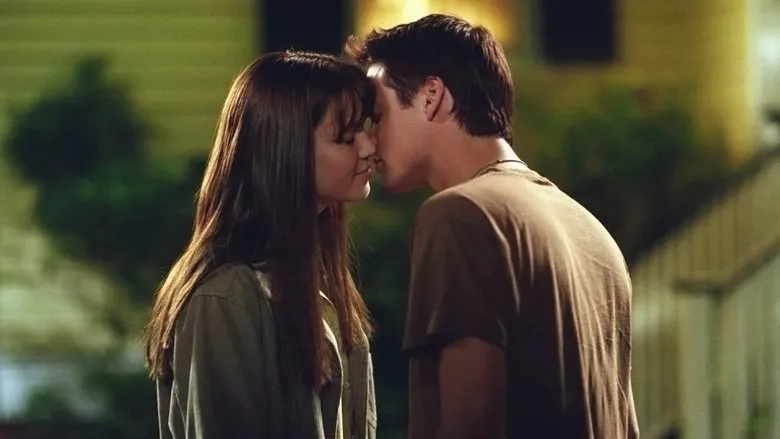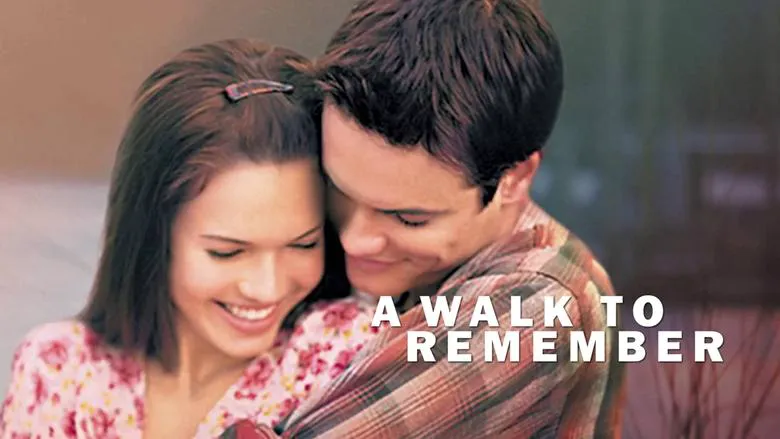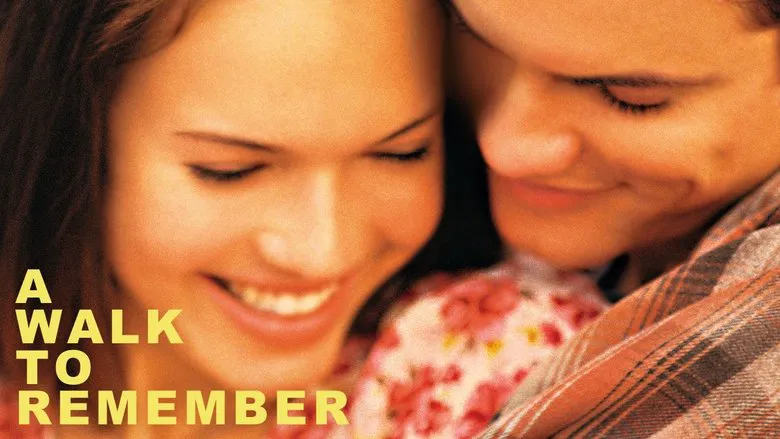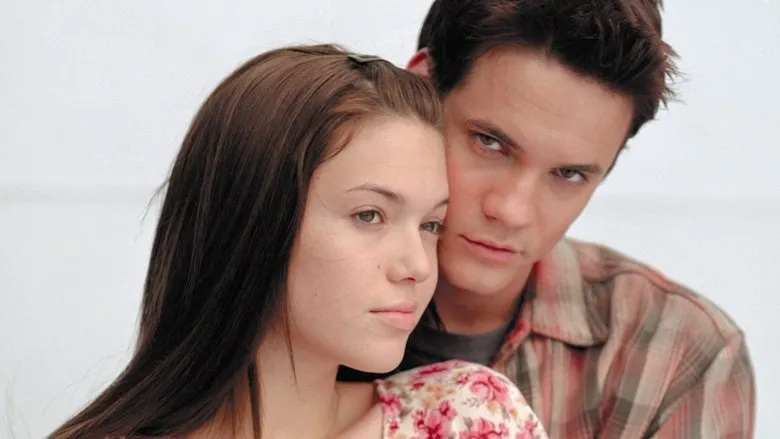A Sentimental Journey or Risky Road? Rethinking “A Walk to Remember”
Remember back in school when the teachers cautioned, “Boys/Girls later, books now!”? There’s a certain truth to prioritizing education, especially when hormones and distractions loom large. In that context, Adam Shankman’s “A Walk to Remember” emerges, a film clearly targeting graduating seniors and dripping with sentimentality. Is it a harmless tearjerker or a potentially misleading portrayal of love and life? Let’s delve in.
 The Promising Poster of the Movie
The Promising Poster of the Movie
One could argue that its over-the-top nature almost circles back to being entertaining. During the screening, the target audience of soon-to-be grads showcased a full range of reactions, from initial giggles turning into louder bursts of laughter. It became an interesting study of how these young viewers engaged with the film’s extreme emotional beats.
Unveiling the Familiar Plot Structure
We’re introduced to Shane West’s character, the obligatory “bad boy” archetype. His nighttime antics lead to recklessness, resulting in community punishment. The sentence reads like a Cold War-era reformation program: school cleaning, church attendance, and forced drama club enrollment. His delinquent pals, naturally, pressure him to revert to his old ways. Then enters Mandy Moore as the preacher’s daughter, an innocent, somewhat unassuming figure marked by her unfashionable attire. Sound familiar? We all recall someone similar in our school days.
 The First Time They interacted
The First Time They interacted
The Predictable Path of Teenage Romance
The narrative predictably follows the “good girl reforms bad boy” trope. He resists, of course, because what else would he do? Focus on those lines? She, meanwhile, delivers scripted monologues about finding deeper meaning. She’s meticulously planned out her life, bullet points and all, and spends reflective moments in the cemetery, stargazing with a telescope inexplicably located amongst the tombstones. What unfolds is straight out of a young adult starter pack.
 They Are Getting Closer
They Are Getting Closer
Initially, the bad boy shrinks from public contact with the good girl, fearful of his friends’ judgment. He treats her with dismissiveness in public. But as rehearsals progress, and his friends cruelly humiliate her, he rises to her defense, leading to a physical altercation. The play’s climactic kiss solidifies their romance for all to witness. The reformation continues: gifts, symbolic stars, and outward displays of affection.
Overcoming Predictable Hurdles
Peter Coyote plays the girl’s father, the disapproving authority figure shaped by past tragedy. On the other hand, he is, unsurprisingly, also a wise and understanding priest. The boy’s mother, portrayed by Daryl Hannah, is even more receptive, having forgiven past familial transgressions. The clichés pile up, seemingly lifted straight from fairy tales and after-school specials. Even the jilted ex-girlfriend eventually comes around, showcasing understanding and acceptance. But wait, there’s a bigger secret…
 Is that a Happy hug?
Is that a Happy hug?
A Plot Twist Too Far
The revelation of the girl’s leukemia diagnosis prompts audible reactions from the audience – the communal groan of a soap opera plot device. While revealing spoilers is generally frowned upon, this felt inevitable. The film’s ending shall remain unmentioned so that it won’t affect anyone who has not seen the scene.
 Enjoying Some Moment together
Enjoying Some Moment together
The movie is meticulously crafted, each scene resembling a carefully rehearsed diary entry. The idealized love story, however, feels detached, almost anachronistic in its rhythm and intensity. The good girl’s final song during the play feels protracted, akin to an endless folk ballad. And when the bad boy and his father finally reconcile with dramatic flair, it’s a scene that feels excessively manufactured.